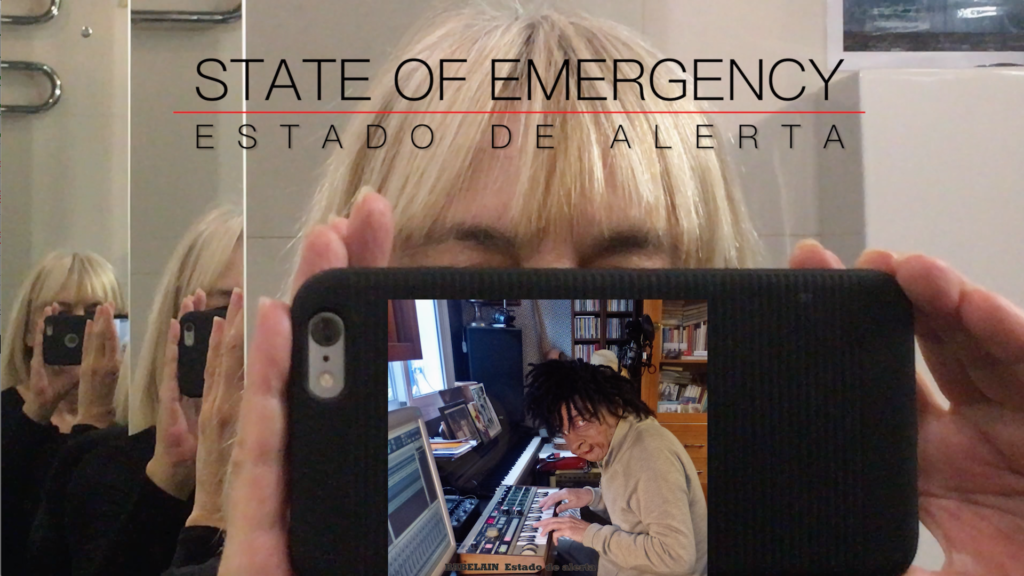
SYNOPSIS
A Dadaist reflection in the days of COVID-19
What if we guide this encounter with the real to help us improve the world?
Here is a joint work combining a certain irony, the absurd and some critical sense.
CREDITS
State of Emergency
Soundtrack and text: BABELAIN
Voice and pic J.L.: MAVI
Translation into English: BRUNO ÁLVAREZ HERRERO
Images COVID-19: www
Video and editing: LISI PRADA
18 Mars 2020
3 min. 30 sec.
LISI PRADA (Spain). A visual artist, based in Madrid, that combines her creative actions with her work as a teacher training consultant. She holds a 5-year degree from the Complutense University in Madrid as well as additional studies in different areas. In her creative work, from minimal resources against the empowerment of perfect machines [near at an Art Povera position], she is interested in the search for balance between conceptual and sensory, between ethics and aesthetics. Prada also uses linguistic polyvalence as a resource for simultaneous multiple layers of meaning. After a decade of learning and experimentation in video and multimedia, she presented one of her artworks in 2009 receiving a special mention at the Spanish Academy of Arts and Cinematographic Sciences. Other awards include: Video art [Transfera and MADATAC. MNCARS, 2011], Abstract Art in Motion [Punto y Raya. MNCARS, 2011], Poetry Film [ZEBRA. Babylon Kino, Berlin, 2012; Accésit Migration and Diversity, Jerez, Cádiz, 2018] and Video essay [FIVAC Cuba, First Price, 2017]. She has presented three solo exhibitions in Spain and has participated in group exhibitions, screenings, and festivals in over fifty countries.
*
LISI PRADA (España). Artista visual con sede en Madrid, que combina su labor creativa con su trabajo como asesora de formación del profesorado. Está licenciada por la Universidad Complutense de Madrid y posee estudios adicionales en diversas áreas. En su trabajo creativo, prefiere unos recursos mínimos al empoderamiento de las máquinas perfectas [cerca de una posición de Arte Povera], está interesada en la búsqueda de un equilibrio entre lo conceptual y lo sensorial, entre ética y estética. Prada también utiliza la polivalencia lingüística como recurso, mediante múltiples capas simultáneas de significación. Después de una década de aprendizaje y experimentación en video y multimedia, presentó una de sus obras en 2009 que recibió una mención especial en la Academia Española de Artes y Ciencias Cinematográficas. Otros premios incluyen: Video arte [Transfera y MADATAC. MNCARS, 2011], Arte abstracto en movimiento [Punto y Raya. MNCARS, 2011], Poetry Film [ZEBRA. Babylon Kino, Berlín, 2012; Accésit Migración y Diversidad, Cádiz, 2018] y Video ensayo [FIVAC Cuba, Primer premio, 2017]. Ha presentado tres exposiciones individuales en España y participado en exposiciones colectivas, proyecciones y festivales en más de cincuenta países.
